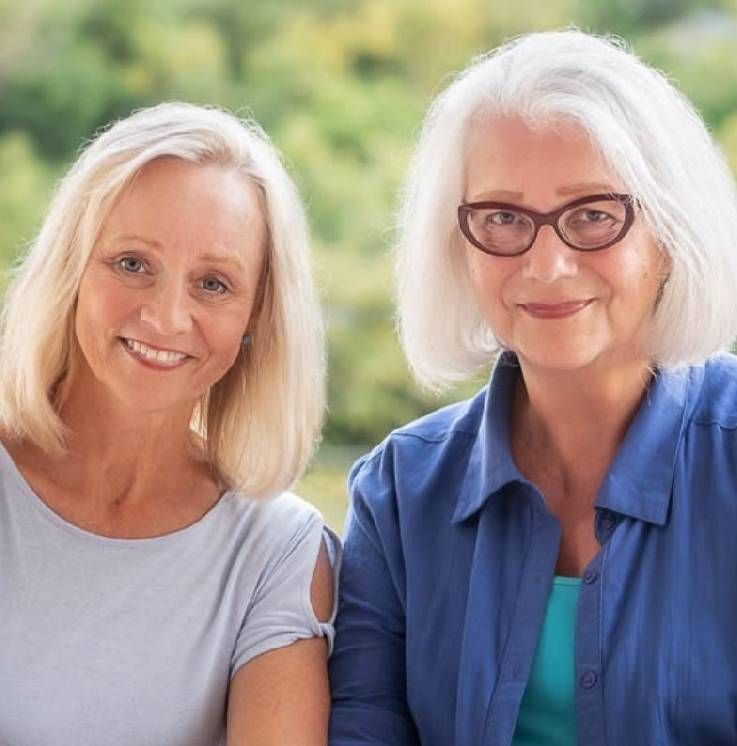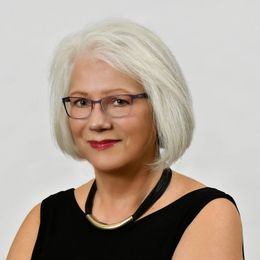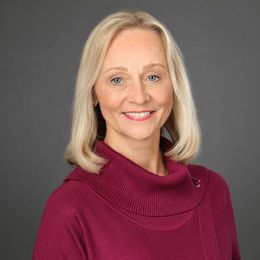The Unique Needs of Postmenopausal Women
Holistic and evidence-based approaches make the most of the body-brain connection as we age
Women, imagine this scenario. Once you've reached the other side of menopause, around your mid-fifties, you are likely to live at least 30 more years, possibly even 40 or 50. You encounter some health issues common to postmenopausal women: fatigue, sleep difficulties, sexual concerns, anxiety, weight changes, bone loss, cognitive impairments and even persistent hot flashes.

You recognize that conventional medicine pays little attention to these issues, so you explore holistic approaches. However, you don't abandon conventional medicine but advocate for what you need, both within and outside the health system.
You expand your web of wellness and find health providers from various disciplines that support you in optimizing your health.
You direct your attention to the "pillars of health" guiding you toward pathways to well-being. You are in charge, feel vital and look forward to what comes next.
A Framework of Holistic Care
This scenario lives within the framework of integrative-holistic care that attends to healing the whole person– body, mind and spirit.
It combines conventional medicine with other traditions of health systems and healing modalities, and it addresses the fundamentals of lifestyle and self-care.
Our recently published book, "Beyond Menopause: New Pathways to Holistic Health," touches on the unique needs of postmenopausal women and describes alternative health systems and healing modalities for aging well.
It offers fresh perspectives on the mental, physical and spiritual elements of holistic living. Dr. Carolyn Torkelson, the co-author, has over 30 years of clinical experience helping women reduce disease risk and promote well-being.
Stories of her patients highlight how women find ways to nourish their bodies and souls by expanding their understanding of other healing systems, such as functional medicine, traditional Chinese medicine and ayurvedic medicine.
Consider exploring integrative-holistic practices that can effectively alleviate or reduce common conditions. For example, mindfulness meditation can reduce anxiety. Yoga can strengthen bone health. Fatigue can be remedied with nutritional and digestion support.
5 Pillars of Health
Dietary changes can lessen hot flashes. Exercise, which is helpful for almost everything, is vital for brain health. These modalities and many others are rooted in five pillars of health essential for healthy living:
- Nutrition and digestion feed your gut-brain health
- Restoration and sleep help replenish and balance your energy
- Movement and exercise bolster your body-brain health
- Emotional stability nurtures your mind-body health
- Social connection and community nurture your sense of belonging and purpose
These pillars and the modalities associated with them work synergistically rather than separately. While you might focus on one health issue with one modality, you likely will experience positive effects in other areas.
Social connection and community nurture your sense of belonging and purpose.
Torkelson's patient, Tracy, 60, illustrates the nature of this interdependence. Tracy was complaining about fatigue and feeling stressed. She ran a successful business in the city. Still, she lived on a hobby farm out in the country, which necessitated commuting a couple of times a week.
Tracy admitted to feeling over-stressed and not taking the best care of herself. "What do I do to get healthier?" she wondered. We discussed a comprehensive list of interventions, including dietary changes, intermittent fasting, food elimination and supplements.
Upon returning in two months, Tracy bounced into the room, exclaiming, "I feel great!"
In response to my question, "Tell me what you did to feel better," Tracy explained, "I chose one main thing you suggested. I ate mindfully. I sat down every morning for breakfast with my husband. By taking the time to eat and talk with him, I re-discovered that I really like him. We reconnected with good conversations, and we had not done that in years."
"Also, when I went to work during the week, I started having lunch with my employees. We closed the shop for 30 minutes and sat together to eat and talk. I realized how lucky I was to have such good people working with me and all of us were feeling more relaxed and less stressed. Wow, the power of mindful eating has changed my life," said Tracy.
Tracy's ability to slow down and eat mindfully is an excellent example of how one lifestyle shift can lead to multiple benefits. Tracy's energy improved, her relationships with her husband and employees flourished, and her emotional well-being was enhanced.
Advocate for Your Health
The scenario could be your story as you assume responsibility for a lifestyle of self-care and advocate for what you need. Being an agent for your health care requires that you prime your advocacy voice. It is strengthened by understanding how your brain works.

For instance, certain things may trigger your "anxious brain" to move away from difficult news or make decisions based more on fear than on information. Being aware of these triggers allows you to learn how to tap down anxiety and engage your "curious brain" in wondering about promising possibilities and moving toward them.
Your advocacy voice also involves knowing yourself as fully as possible, mainly how you interact with health providers. As many of us have, you may have been taught not to listen to your intuitions and emotions, yet your emotions significantly influence how you think and act.
This body-brain connection is vital in priming your self-advocacy voice and speaking for yourself.
Recognize that holistic care seldom resides in one provider, modality, or discipline. In light of the wide range of health conditions among postmenopausal women and your uniqueness, no single playbook will work for everyone.
Instead, the opportunity is for you to create your own web of wellness customized to your changing needs. The web of wellness is a dynamic network of providers, modalities, disciplines, strategies and connections that support your health and keep you balanced.
Central to the component of wellness is how you nourish your whole self, which goes well beyond the choices of foods you eat. It involves tending your spiritual awareness and growth, and being compassionate toward yourself as you navigate the complexities of life's pleasures, challenges and losses.
Nourishing your connections with other people, animals and nature foster purpose and resilience that are essential to well-being.
You are the author of your health scenario. Be courageous and bold in creating pathways to harmonize your body, mind and spirit.



